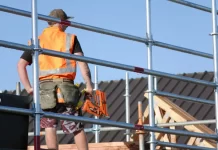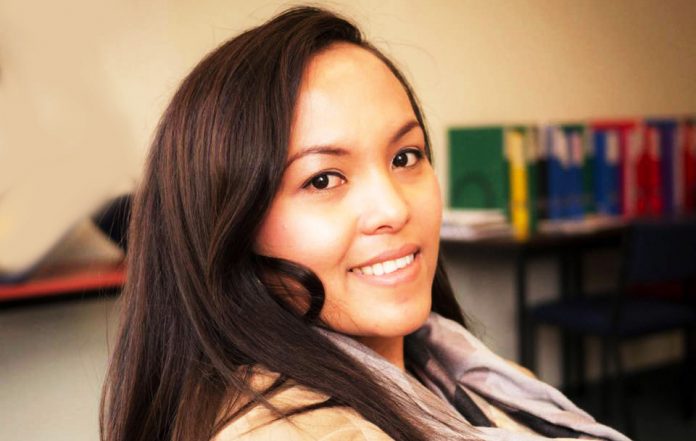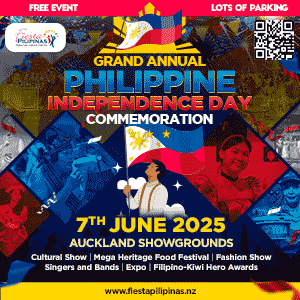By Mel Fernandez
INVERCARGILL – A Filipino mother of three in Southland is adding a new twist to the meaning of the term ‘bayanihan spirit’ by ‘doing the whole bit’ when it comes to lending a helping hand.
It is well known that Filipinos have a strong urge to help their kababayan (fellow countrymen), but Meggy Barlett-McBride takes this passion for helping others to a whole new level.
“Since 2009 it’s always been in me that I like to help others. I think we all have that attitude – when others need help, we help.” Having an altruistic personality, she does not discriminate when it comes to choosing who to help. She goes out of her way to help newcomers from every corner of the world.
Some would find it challenging having to interact with people from diverse cultural backgrounds, but Meggy, who has been a tireless volunteer in the migrant community for many years, takes it all in her stride. “I’m not focused on any one culture, I’m doing the whole bit, which is a lot harder to do. You have to understand their culture; you have to understand how they react to you and all that.”
She joined the Southland Multicultural Council in 2013, as it was the first point of call for new migrants to the city. She was elected its President two years ago.
In recognition of her volunteer efforts and commitment to the migrant community she was recently named The Southland Times Southlander of the Year. The paper honours a Southlander each year “who stands out by the work they do, how they treat people and the passion they have for living in the south”.
How did it all start for Meggy? Well, she migrated to New Zealand from Cebu 12 years ago at the age of 19. “As I didn’t really know anyone at that time I felt isolated,” she recalls. “That was a struggle that I had to deal with personally, because in the Philippines we knew everyone in the neighbourhood.”
Fortunately for Meggy, her Kiwi husband was there to provide some support. “But when he died there was a gap. We migrants don’t have family members that we can cling onto in times of need. I experienced that and I didn’t want other migrants to feel helpless.”
Finding a job is yet another challenge for new arrivals. “In my case, being a mother is a full-time job, but in order to support my family I needed a source of income. I studied Beauty Therapy Level 5 and opened a beauty salon – ‘Meggy’s Beauty Room’. This was my first job in New Zealand.”
New migrants also face other challenges. “Transport is a problem in Invercargill,” notes Meggy. Then there is the language issue. “We Filipino migrants speak English, but we are not used to using it all the time. So some of us do have trouble conversing with others. But it is getting easier for me.”
How does Meggy juggle family and work responsibilities with her passion to help people? “Volunteer work does take a lot of my time. It cuts into my family and work time. I have 3 children and they sometimes become the second priority. I don’t really complain because it’s in my nature to help people and if I can’t help I feel guilty.”
What is life like for a migrant in Southland? “Compared to when I first came here, Kiwis are more accepting of migrants. 10 years ago there were not many migrants here in Southland. As more people started arriving the local community became more accepting of the migrants than before.”
According to Meggy there has been a sharp increase in the number of Filipinos coming down south. Over 1,000 have settled in Southland and there are 100 Pinoys in Invercargill.
“Some are studying at the Southern Institute of Technology. There are quite a few working in dairy farms and the health sector – nurses and caregivers. Some work in the industrial sector like in welding; others are absorbed into administrative roles, banking and so on. There are a couple of Pinoy doctors with their own practices over here.”
To make them feel at home, ethnic businesses have sprouted up in the main centres. For example, a Filipino Mini-Mart has opened in Invercargill, as well as two cafes – Goldiluck and Kabayan Eatery.
Volunteers in the community have strived to create a welcoming atmosphere by putting on a number of ethnic events. The Filipino Society holds an Independence Day event each year. A bigger event is the Multicultural Race Relations Day organised by the Multicultural Council. “More than 3,000 people turn up for this event,” says Meggy.
At the end of the day, you may come to the conclusion that volunteers like Meggy are different from most people – because they love helping people so much. “I can’t help everyone,” admits Meggy, “but I do what I can to ease their struggle so that they can cope with the obstacles they are going to face.”








































